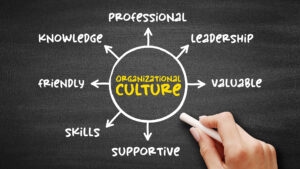Most business owners have multiple responsibilities and find it difficult to find time for their personal development and growth. Executive coaching in such cases is extremely beneficial as the coach enables participants to identify the areas for improvement and develop a plan to achieve these objectives.
What is executive coaching?
It is a process that helps senior and C-suite executives to achieve business, personal, and professional objectives. The coach works with the participants to identify their strengths and weaknesses, set measurable and realistic objectives, create an action plan, measure progress, and offer feedback to recalibrate methods and strategies needed for success.
An effective executive coaching training program is beneficial to participants and their organizations as it enhances communication, leadership skills, and productivity, shape organizational culture, better decision-making, and promotes positive behaviors.
Benefits of executive coaching
Executive coaching has several benefits but what makes it truly advantageous is that the entire organization is better informed with greater focus on working towards achieving the same objectives.
Here are seven top benefits of executive coaching:
- Enhanced communication and leadership skills
An important focus area of leadership coaching programs is communication. Leaders must be able to communicate effectively with their personnel to ensure transparency and understanding. Executive coaching teaches participants various methods to give and receive constructive feedback, manage and resolve conflicts, develop team rapport, and more. The training also enhances leadership skills to motivate others to improve their productivity, set clear expectations, offer required support, and create an environment where people feel appreciated and valued.
- Improved productivity
With a clear plan and focus, productivity can see a significant boost. Executive coaching can be customized to meet the specific requirements of the participants and offers ways to focus on the most important tasks. Additionally, coaching brings in higher accountability ensuring participants are making progress and not letting distractions take away their focus.
- Fosters positive culture
Culture is key to organizational success and begins at the top. Coaching helps companies build a culture based on accountability, integrity, and respect. The coaches help participants model these values to ensure these percolate throughout the organization. Leaders become self-aware, and emotionally intelligent, and develop improved listening ability. Such behaviors have a rippling effect and foster a positive, productive, and value-based culture.
- Better decision-making and problem-solving abilities
Executive leadership coaching program helps participants develop strategic problem-solving skills that empower them with better decision-making abilities. It encourages innovation and provides a safe place to explore multiple options to reflect on decisions while empowering people to work as a team towards achieving the same goals.
- Stay ahead of competitors
Companies must evolve and innovate to stay ahead of their competitors. Executive coaching helps leaders become innovative and offers new ways of thinking, which results in different ideas, strategies, and tools that can be used in their work. Innovation is important for success and executive coaches help participants learn and grow both personally and professionally. Coaches encourage participants to develop strategic plans to anticipate potential changes and be prepared for any situation.
- Discover opportunities and identify blind spots
Often organizations fail to effectively implement their strategic plans due to the leaders’ inability to see beyond their biases and personal objectives. Executive coaching helps leaders identify the blind spots and capitalize on potential opportunities. Coaching is not about solving problems but about having a clear strategy and vision to achieve organizational growth and success. Encouraging leaders to identify early opportunities, and develop and implement strategic plans to steer company growth.
- Holistic leadership skill development
Executive coaching helps participants develop holistic skills to actualize the corporate vision. The objective of leadership executive coaching is not only decision-making skills but to transform character that enables participants to modify their influence sphere by combining business aptitude, emotional intelligence, and technical abilities.
Leadership is not about power and position but about exerting influence with service. Executive coaching helps senior leaders develop qualities to bring in more efficiency while working in their roles. Focusing on personal development and professional growth, coaches enable participants to enhance their leadership impact and implement sustainable and long-lasting changes.





